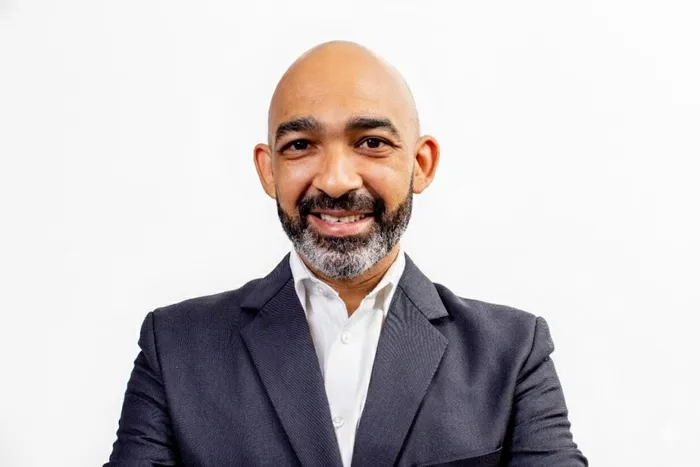Sabotage from Above and Below: How BEE Is Being Dismantled by Both ItsOpponents and Its Custodians

Prof Armand Bam
Image: Supplied
Black economic empowerment in South Africa is not collapsing by accident. It is being dismantled deliberately, but from two different ends of the political spectrum. From above, through constitutional litigation framed as “non-racialism”, but designed to protect historic advantage. And from below, through state incompetence, elite capture and patronage networks that hollowed out BEE’s purpose until the public could no longer recognise justice in its name. This is not policy failure; it is political sabotage.
When the Democratic Alliance challenges BEE in court, it does so under the language of fairness, equality and constitutionalism but the effect of its strategy is not neutral. It is racially restorative for those who already sit atop the economic ladder. Removing remedial measures in a society where ownership, capital and opportunity are still overwhelmingly racialised does not return us to a level playing field; it locks in the old one.
A colour-blind legal framework inside a structurally racial economy is not fairness; it is the legal preservation of inherited inequality. The DA’s litigation is premised on intention, but equality in South African law is judged by effect. Substantive equality, not formal parity, is the constitutional standard. Without conscious correction of structural injustice, we do not achieve democracy; we merely stabilise its hierarchies.
But the DA’s offensive does not succeed in isolation. It succeeds because the ANC long ago forfeited the moral credibility to defend BEE. A governing party entrusted with widening participation instead narrowed it, treating empowerment as patronage currency and political insurance rather than as an instrument of structural change. BEE did not lose public legitimacy because South Africans lost patience with justice; it lost legitimacy because its custodians repurposed it for accumulation.
Instead of building institutions capable of widening entry, the ANC built intermediaries capable of extracting value. Instead of engineering broader ownership, it entrenched insider access. Instead of transforming the economy, it constructed a parallel elite. And in doing so, it weakened BEE from below ethically, administratively and politically, long before the DA attacked it in court.
This is why the DA can now claim that BEE is broken. It is not revealing a truth; it is weaponising the wreckage the ANC left behind. BEE was not defeated by its opponents; it was first betrayed by its custodians.
And so we face a two-fronted assault:
Legal rollback from above, cloaked in non-racialism but protecting structural advantage;
Political capture from below, cloaked in liberation credentials but protecting insider networks.
One empties the constitutional principle. The other empties its implementation. Together, they hollow out its promise.
The people who pay the price are not the litigants or the politically connected, they are the millions for whom redress was never symbolic, but existential. Young black graduates who cannot translate education into opportunity because equity in theory does not become access in practice. Township entrepreneurs shut out of capital markets that still read risk through race. Workers permanently stalled at the bottom of stratified workplaces that remain racially patterned even after three decades of policy language claiming otherwise. These are the South Africans BEE was meant to reach and mostly never did.
The Constitution does not merely permit race-conscious redress; it requires it where systemic disadvantage endures. Section 9(2) is not decorative text. It is an obligation on the state to correct material inequality, not narrate progress while preserving the structure that produced it. Substantive equality recognises that history is not an event, but an economic architecture and that dismantling exclusion requires more than representation; it requires redistribution of capability, mobility and power.
But constitutional duty without credible custodianship is hollow. The DA’s challenge aims to erase the legal foundation of racial justice. The ANC’s governance failures have already erased its moral foundation. One strips protection of redress; the other strips trust in it. Both, in different ways, return South Africa to the very imbalance BEE was created to confront.
The way forward is not retreat from redress, but rescue of redress from party politics. BEE must become what it was promised to be: a mechanism for widening participation, not narrowing it to those close to the state. A system that grows the base, not recycles privilege. The solution is not a smaller empowerment regime, it is a far more public-minded, accountable and institutionally competent one.
That requires leadership, not positional title, but stewardship: leadership that sees transformation as a constitutional duty, not a career instrument. Leadership willing to rebuild public trust by reconnecting empowerment to its intended beneficiaries. Leadership willing to defend justice not as ideology, but as infrastructure.
Because in the absence of such leadership, BEE will not be reformed; it will be abandoned. And abandonment is not neutrality; it is regression by design. The question before South Africa is no longer whether empowerment should exist, but whether there are leaders prepared to govern it with enough legitimacy for it to matter.
BEE does not need defenders in rhetoric. It needs custodians in practice. Until we reclaim redress from both those who undermine it and those who exploited it, justice will remain stranded between sabotage from above and betrayal from below.
Prof Armand Bam is the Head of Social Impact and PGDip NPO Leadership Development at Stellenbosch Business School.
Related Topics: